
Georgia: EU helps Keda community and businesses recover from COVID-19
Keda LAG is a local action group in the municipality of Keda, in Ajaria, an autonomous republic in southwestern Georgia.
As part of a project supported by the European Neighbourhood Programme for Agriculture and Rural Development, the Keda LAG team have organised a grant competition to help their community during the COVID-19 pandemic. The three winning projects selected aim to help the local population cope with different challenges.
Head of Keda LAG Giorgi Abuladze says:
“The goal of the contest was to select projects that could support Keda tourism during the pandemic through innovative ideas, help the local population manage and develop services using modern technologies, promote cultural tourism, and help increase women’s role in the sector. The pandemic has shown that flexibility and digitalisation are crucial for the population; businesses have started to operate online, and it is necessary to support those residents of Keda Municipality who lack the relevant skills to cope with the new challenges.”
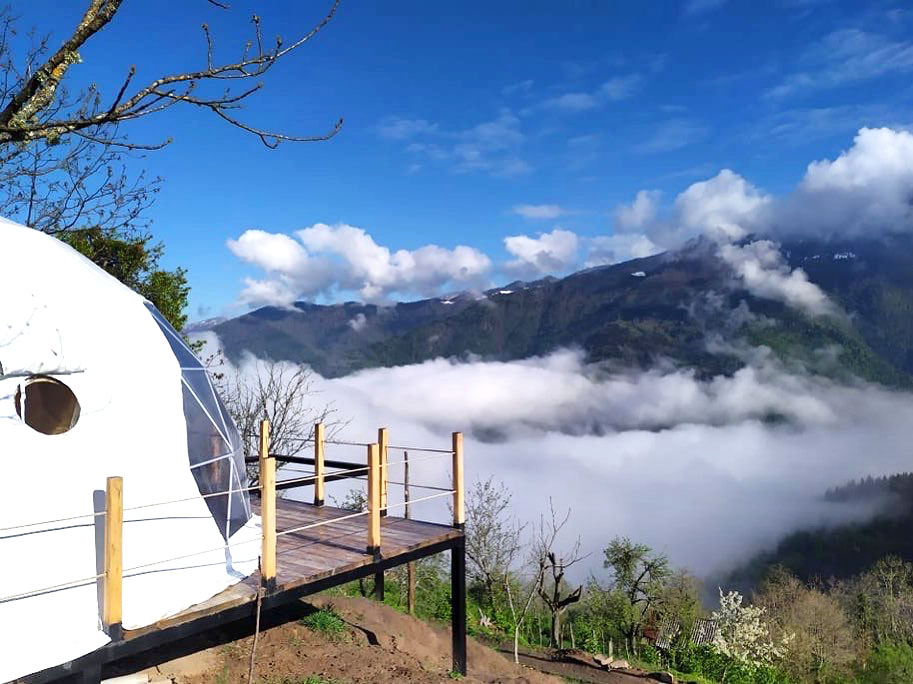 Nature around Keda municipality always attracted many tourists
Nature around Keda municipality always attracted many tourists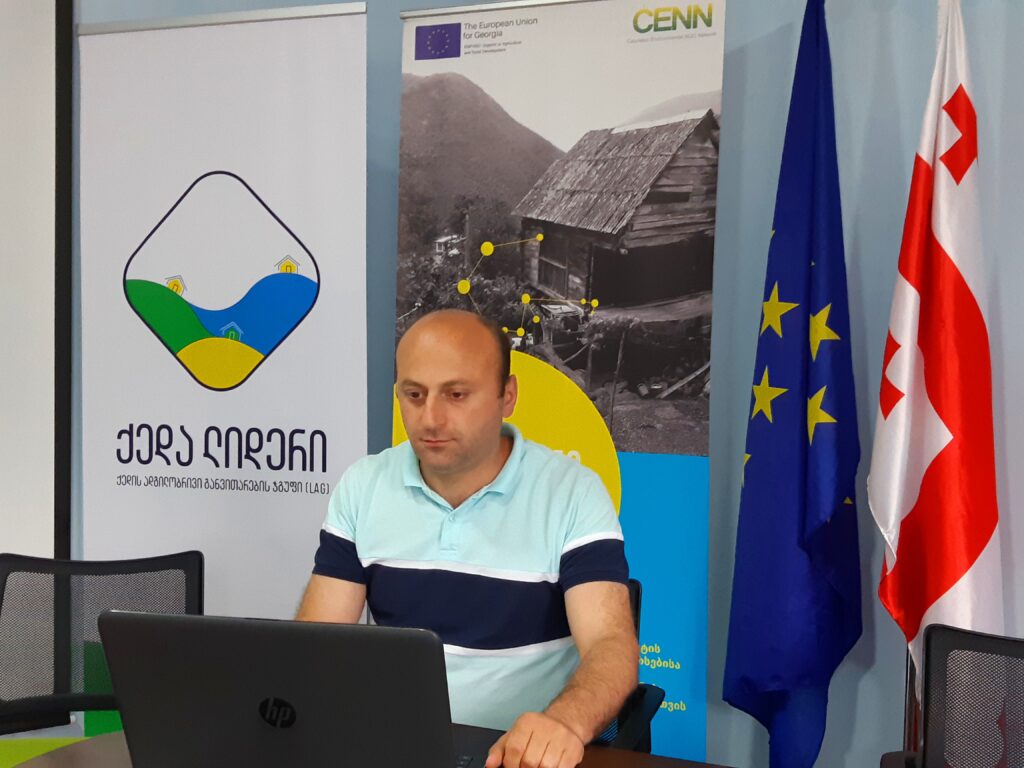 Head of Keda LAG Giorgi Abuladze
Head of Keda LAG Giorgi Abuladze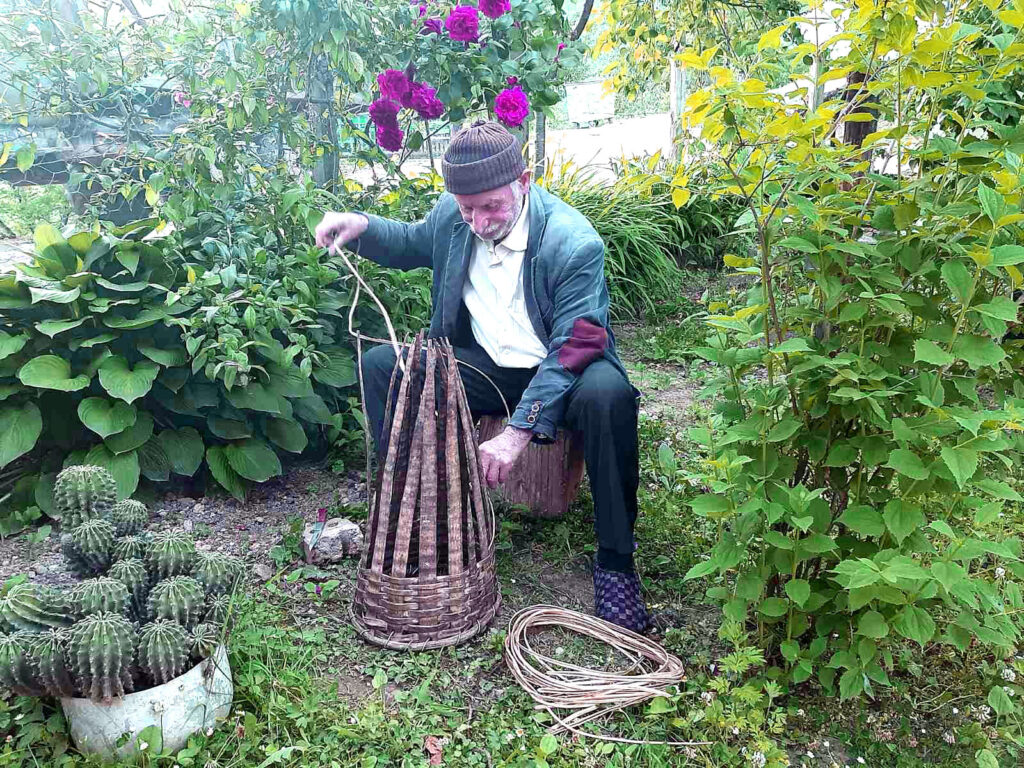 Keda cultural heritage attracts tourists to the region. Ramaz Turmanidze demonstrated how ancient wine press works
Keda cultural heritage attracts tourists to the region. Ramaz Turmanidze demonstrated how ancient wine press works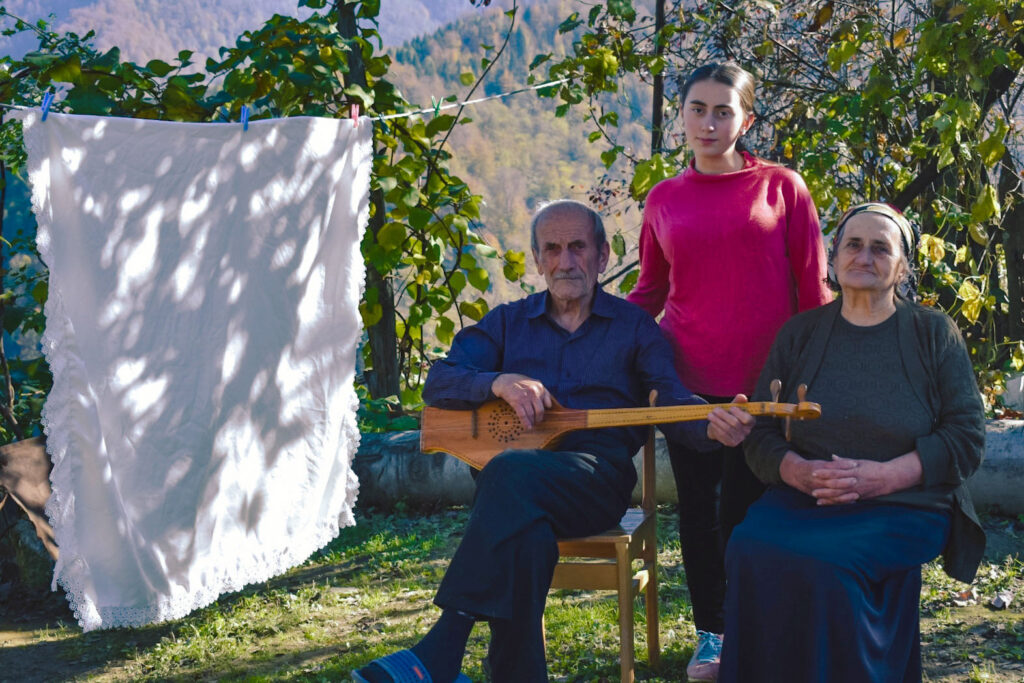 Family of Turmanidze demonstrates Georgian folk instrument Fanduri
Family of Turmanidze demonstrates Georgian folk instrument Fanduri
‘Keda against the coronavirus’ is one of the winning projects and is implemented by the Mental Healthcare Organisation.
“The project offers basic psychological support to the people of Keda through a qualified psychologist who answers calls and provides consultations. Public interest is fairly high – people contact us with personal stories and questions on how to overcome the barriers caused by the pandemic, and how to support their family members in handling these challenges. The psychologist is also available online via Zoom where she leads webinars and discusses personal problems and general topics,” says Project Manager Hamlet Sanikidze.
The psychologist, Nino Mghebrishvili, is often contacted by people with anxiety about COVID-19.
“In a number of cases anxiety is caused by the fear of infecting family members; loss-related anxiety is also common, be it loss of a loved one or a job,” explains Nino.
Nino also says she is often contacted to help children with anger management. As it turns out, parents find it hard to control their kids’ behaviour during the pandemic, as staying at home for a long time is stressful for both parties.
The project also offers digital marketing courses for farmers. With the local marketplace closing during the pandemic, the project has helped farmers acquire skills to sell their products online.
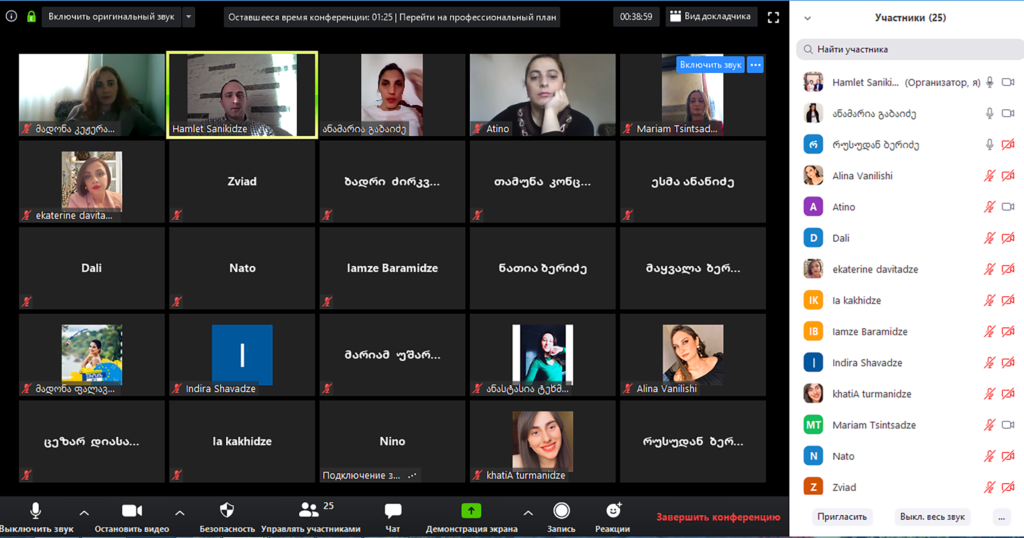 Webinar conducted by psychologist Nino Mghebrishvili to address COVID-19 related challenges
Webinar conducted by psychologist Nino Mghebrishvili to address COVID-19 related challenges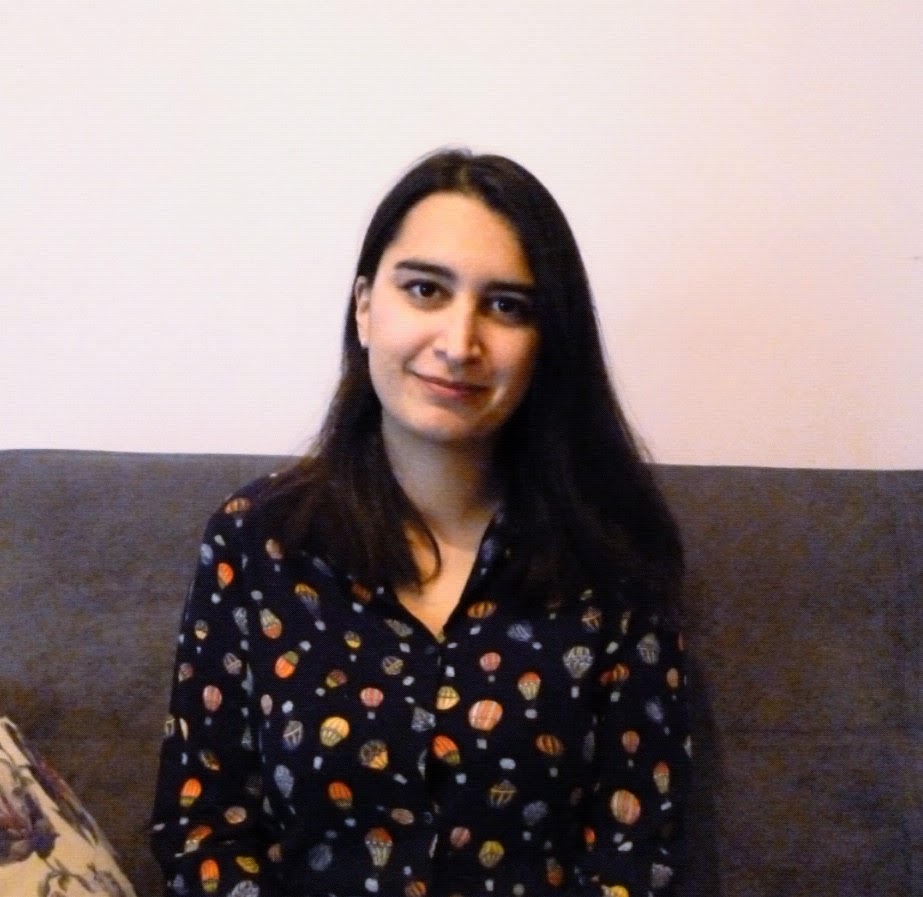 Nino Mghebrishvili
Nino Mghebrishvili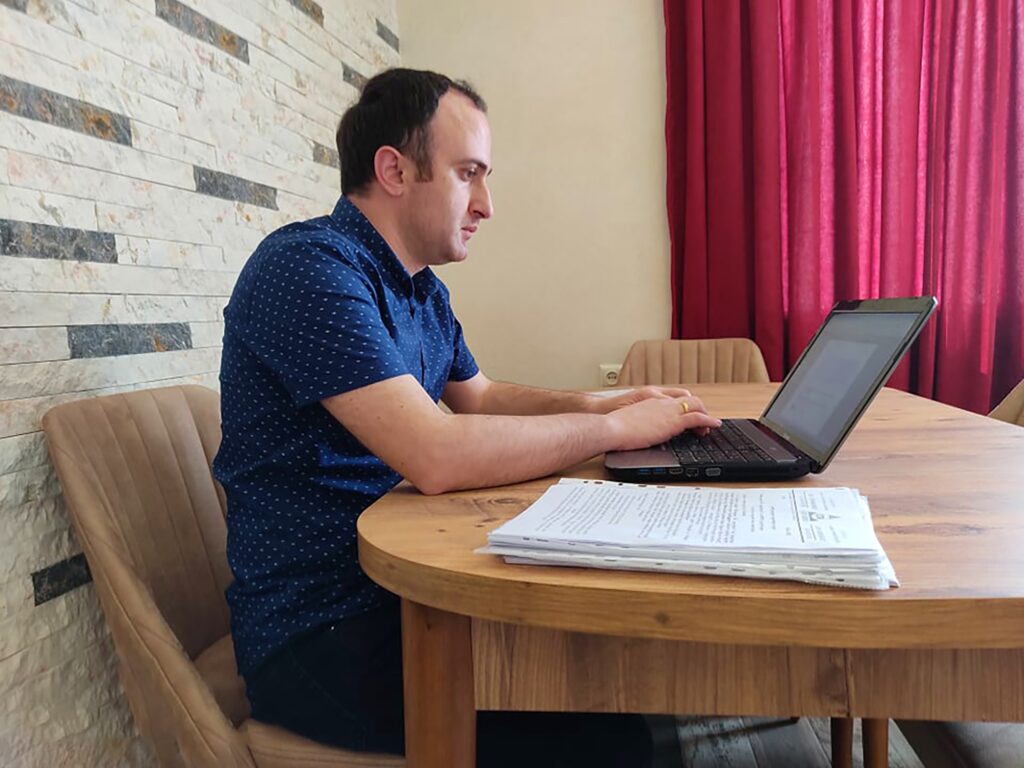 Project Manager Hamlet Sanikidze
Project Manager Hamlet Sanikidze
“In these circumstances, digital marketing plays a crucial role in saving farmers’ businesses. We developed a cycle of training webinars, which were attended by about 20 farmers. We taught them computer skills and how to manage social networks; we also gave them information about online platforms in the tourism sector. We expect that more people will join the project over time,” Hamlet shares.
The second project, ‘Feel local’, is implemented by the organisation Global Entrepreneurial Network, and aims to develop rural tourism through innovation.
The project’s leader, Tinatin Gholadze, explains:
“We have created the Facebook page Shinaurulad as a tool for our beneficiaries to promote their services and post information about their offers. The project currently has 25 beneficiaries – owners of guesthouses and hotels – and we help them develop their digital skills and competencies. They receive practical assignments which they complete online. They learn how to process offers and also about digital storytelling. Together, we have created a cartoon character of a German tourist who hitchhikes across Georgia and describes the offers available for tourists.”
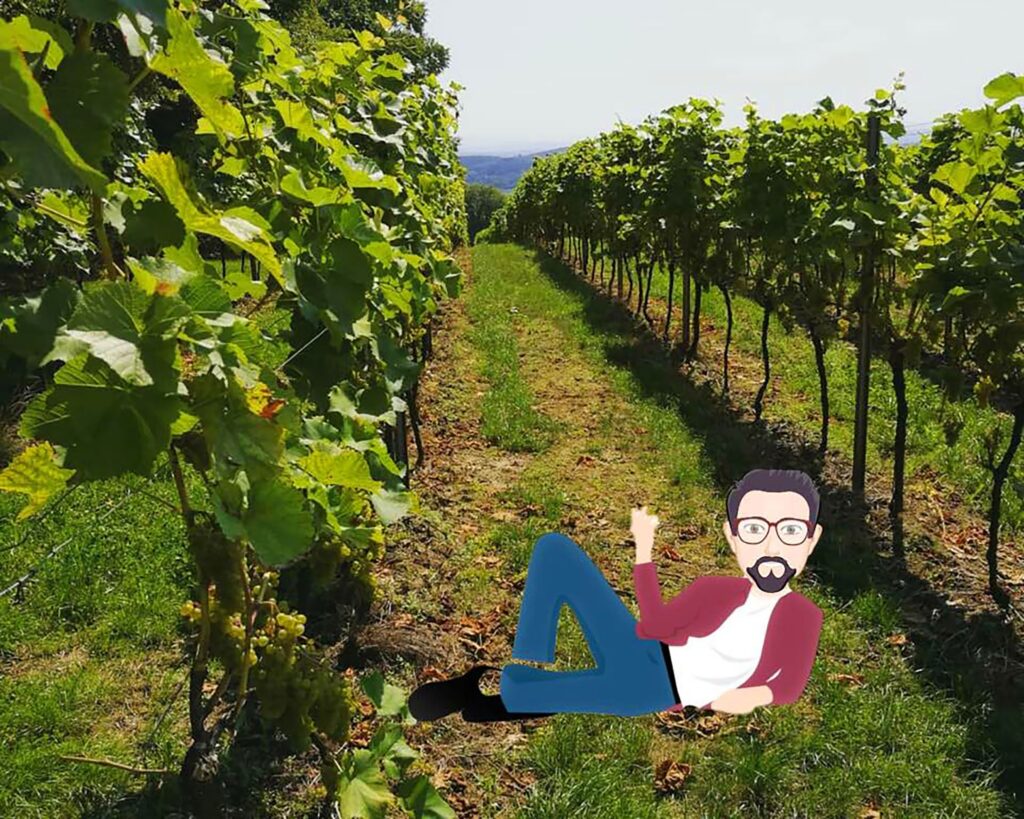 EU project helped introduce animation elements in digital storytelling about region’s traditions
EU project helped introduce animation elements in digital storytelling about region’s traditions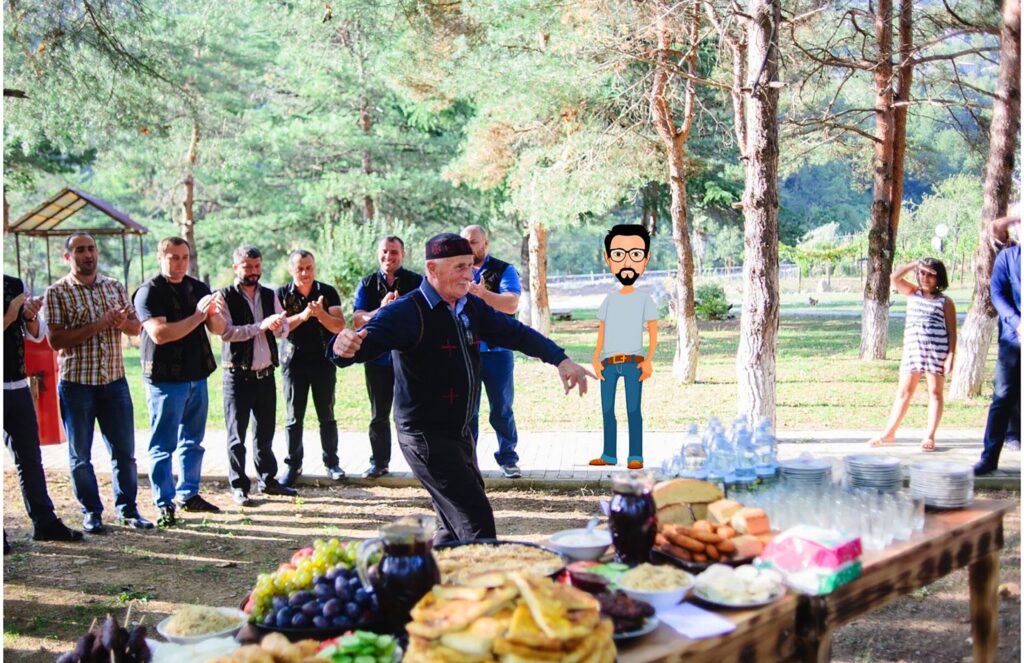 Traditions of Ajaria have always attracted tourists to this region. EU project helped introduce animation in digital storytelling about region’s traditions
Traditions of Ajaria have always attracted tourists to this region. EU project helped introduce animation in digital storytelling about region’s traditions
A dedicated website is also coming soon to promote tourism offers. Keda locals will be able to register on the site and upload their services, such as cheesemaking, traditional cooking classes, grape pressing, hiking tours with shepherds, pottery and other activities.
The third project, ‘Support, education and empowerment of Keda Municipality’, is implemented by the organisation Nabiji Tsarmatebisken. The aim is to support local youth, especially vulnerable groups, through raising awareness and developing their personal and professional skills.
Young people aged 14–18 and 18–25 will participate in an 8-week online course. They will receive training on basic human rights, leadership and communication, drafting cover letters and resumes, attending job interviews, writing project proposals, social media and computer skills, cybersecurity and cybercrime, democracy and machinery of government. Participants will also receive information on volunteering and youth opportunities.
All three projects will summarise their final results and achievements in July 2020.
Author: Tamar Kuratishvili
MOST READ
SEE ALSO

No, time is not on Russia‘s side
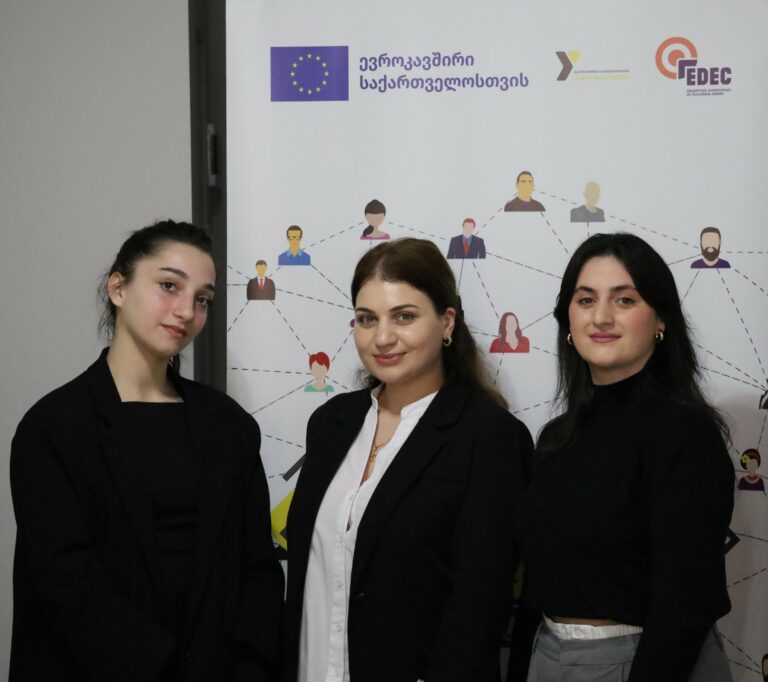
A hands-on approach to boost youth employment in Georgia
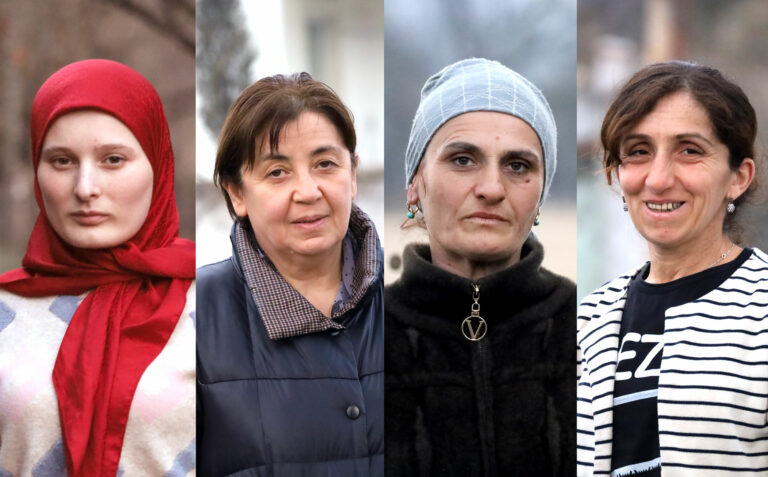
Taking health into their own hands: women’s empowerment in the remote villages of Georgia
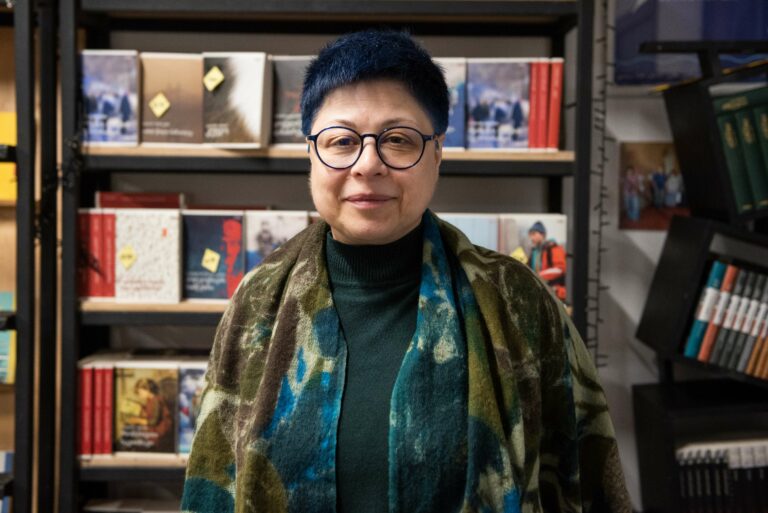
A woman publisher in a male-dominated industry – the path to a big dream

Be one step ahead of a hacker: check simple cybersecurity tips!
More campaign pages:
Interested in the latest news and opportunities?
This website is managed by the EU-funded Regional Communication Programme for the Eastern Neighbourhood ('EU NEIGHBOURS east’), which complements and supports the communication of the Delegations of the European Union in the Eastern partner countries, and works under the guidance of the European Commission’s Directorate-General for Neighbourhood Policy and Enlargement Negotiations, and the European External Action Service. EU NEIGHBOURS east is implemented by a GOPA PACE-led consortium. It is part of the larger Neighbourhood Communication Programme (2020-2024) for the EU's Eastern and Southern Neighbourhood, which also includes 'EU NEIGHBOURS south’ project that runs the EU Neighbours portal.

The information on this site is subject to a Disclaimer and Protection of personal data. © European Union,







